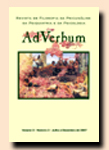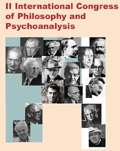In spite of being once interested in Nietzsche's works, and being inspired by the English associationism to adopt an empiricist model to psychoanalysis, Freud's opinions about philosophy were rather almost always unfavorable.
Assuming psychoanalysis as a natural science and having, as a consequence, a presumed objective and neutral standpoint, Freud assumed it was philosophy which had to learn from psychoanalysis, not to contrary.
The same can be said about Lacan. Philosophy is spread out everywhere in all his spoken and written's works. Nonetheless, he disconnected psychoanalytic from philosophical discourse, as if both theory and clinics were immune from presuppositions.
If we, by chance, take those attitudes as typical philosophical positions mixed with candid beliefs, the more rigorous philosophy will appear as an urgent analytical and critical exercise in order to illuminate the columns and foundations, hardly visibles, which sustain both psychoanalitic theory and clinics.
Philosophy cannot suggest anything to psychoanalysis - it is an autonomous discipline-; but can ask for the elucidations of its concepts.
This website, connected to the Work Group of Philosophy and Psychoanalysis from Anpof (Brazil's National Association of Graduation in Philosophy) has the objective of sheltering and publicize some philosophical texts on psychoanalysis which have been produced in the latest years in Brazil. Particularly on Freud, Lacan and Winnicott. It is also part of its objectives to extend this task to both the philosophies of psychiatry and psychology, correlated activities which cannot be left untouched by the serious investigation.
So, look into the texts archive, check the schedule for the next conferences, symposiums, congresses, meetings, and courses, send your own texts for our archive, search for our Lacan's original texts collection, take also a look into the latest books publication in this area in Brazil. |


